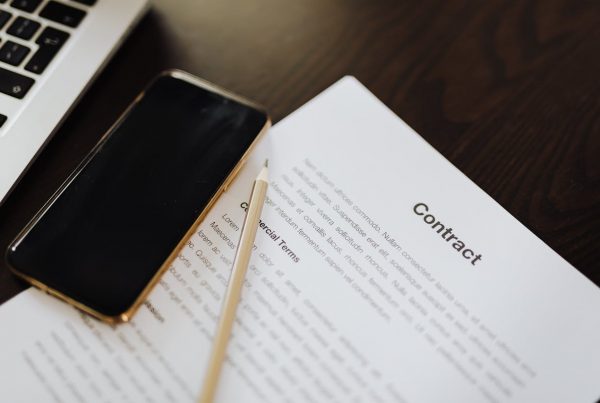For years the fears of going to a dentist has played in the minds of many people afraid to face the dentist chair or the squeamish drill that rings in your ears when the drill is placed in your mouth. The breath hastens or the heart beats faster as you are asked to keep your mouth open for odd moments or when a drill hits are raw nerve. This fear remains even if you regularly visit the dentist.
Unfortunately, this fear and likely the effects exists too if you were asked to visit a lawyer at a law firm.
The anxiety plays out of attending a law firm’s office; waiting for the lawyer to attend to you. It does not help if the meeting room is cluttered with law books from wall to wall or if dimly lit and poorly ventilated. Sometimes the meeting rooms are crowded with coloured files of other clients, placed in your midst. As you wait, your heart rate races just thinking, not knowing if there is a shocking bill at the end of your consult, which momentarily takes your breath away. The air is stiff with tension as you wait but that anxiety does not go away even when the lawyer appears.
Perhaps the anxiety is because you have heard time and again that seeing a lawyer is expensive or that you can expect to pay “a lot of money” just from one appointment. You have heard exaggerated stories that you have to be guarded when you attend a lawyer’s office.
This article is to ally your fears, clear your misconceptions to set some guide posts for you so that you can retain control in any meeting with your lawyers.
Introductory Call
Usually there is an introductory call to check for what is known as a “conflict check”. This is to ensure that the lawyer is not acting for a party who is or could be the law firm’s previous client. The lawyer would also wish to verify your identity and to assess whether a lawyer is needed in your case in the first place. Sometimes, the introductory call made by a senior secretary or the firm’s manager, but the checks are the same i.e. to do a conflict check and to assess if a lawyer is needed in your case. Once the checks are done, an appointment will be fixed usually at your convenient time. The meeting is during office hours and on a week day usually.
Once the introductory call is completed, you will be invited to attend the law firm’s office to meet the lawyer (and his team if the matter is more complex). In recent times, meetings have been conducted via Zoom and Teams. It is useful to note that even the Singapore Courts have started to conduct cases via Zoom.
Is it a lawyer or solicitor or counsel, are they different persons?
The word “lawyer”, “solicitor”, “advocate”, “counsel” all refer to the same person i.e. a qualified person under the Legal Profession Act who must have a valid practising certificate at the time of your engagement before he can advise you.
A lawyer who does not have a valid practising certificate and the necessary insurance cover cannot advise you on the aspects of Singapore law and must refrain from doing so. Taking any advice from an unqualified person i.e. not even a lawyer, is not only foolhardy on your part but at your peril should your matter go down south. It is advisable that you check if the person who is meeting you is genuinely a lawyer in the first place.
Preparing for the First Meeting with a Lawyer
When you attend a lawyer’s office, it could be because you need help with a criminal charge against you or a loved ones; to claim or defend a claim for monies or loss you have suffered, be involved in an accident and suffered property damage or injury or to deal with the sale or purchase of a property. In less stressful circumstances, you may need advice or some contract prepared or reviewed for you or for your business.
General Rules
It is advisable to come early as the lawyer would have blocked a slot for you to have that meeting with you and expect that the meeting would end at a specific time.
Come prepared with your questions so that the lawyer would be able to answer them at the appropriate time.
At the meeting, you may be greeted by more than one persons. If there is only one person in your meeting, he or she is likely to be a lawyer taking your instructions and advising you further. If there are two persons, one could be a junior lawyer to assist the senior lawyer.. The third person in the room could be a trainee or support staff supporting the team with certain administrative matters.
If there are too many persons in the room, you should check if you there would be any additional costs incurred to you for having the additional persons seated in your meeting room with you.
Capacity or Authority to Act
First, you need to inform and for the lawyer to identify if you have the authority and capacity to give instructions as you may be required to enter into a warrant to act or letter of engagement to appoint the law firm to act for you. A warrant to act is a document stating that you are giving the lawyer to act for you. The letter of engagement would commonly contain terms and conditions on costs, confidentiality, termination and explanation on who would handle your case and what to expect.
Capacity to enter becomes relevant if you are instructing the law firm on behalf of a third party like a company. If you are attending in your personal capacity, no further verification is needed other than your personal identity details and supporting documents. If you are representative of a company, you should bring along your ACRA details and your position in the firm.
Relevant Documents
Always good to bring along all the relevant documents for the purposes of the discussion. Relevant here means all documents connected with your case, typically letters, emails, WhatsApp communications, contracts, reports etc.
In specific situations to your case, it could also include letters from clinics, photographs, drawings, plans, statements of witnesses or potential witnesses.
It is best if the relevant documents could be organised in a chronological manner from the earliest to the latest or vice versa. Nowadays, clients are encouraged to digitise their content into pdf readable so that the law firm could have it in soft copy.
“I don’t speak much English….Can I speak in….?”
You may not be very proficient in the English language, and you prefer to have lawyer speaking in your native tongue. Most law firms should be able to provide you with this service and do not be afraid to ask for someone who can. At our firm, we can speak Mandarin, Bahasa Melayu, Tamil. If documents need to be signed, an interpreter will also be arranged for you.
Questions, Questions, Questions
Expect the lawyer to ask many questions and his or her questions would be very different from what you may want to share with the lawyer that you think is important. Sometimes, the lawyer may stop you from continuing. Do not fret, the lawyer is looking for relevant information.
Remember that the lawyer is attempting to assess and form a preliminary view based on the information you provide and the documents you have shown. The lawyer needs to assess if the legal principles are met to advise you better.
Prepare a Chronology of Events
It is useful if you could prepare a chronology of events of your case before your meeting as it would assist in narrowing down the issue and for the lawyer to provide a preliminary strategy of advancing your case or providing the relevant document.
It does not have to be long lengthy sentences. It can be in point form but it should include key dates, time and description of the event. From your chronology, the lawyer would be able to have a time line of events that could be critical in formulating the strategy for your case.
Timing
Expect the meeting to last for at least 20 to 30 mins and it can go on till 2 to 2.5 hours if the issues are many and complex.
The Deposit
It is common or usual practice that the solicitor will ask for deposit before he is able to carry out any work for you. The deposit may be a refundable deposit or a non-refundable deposit.
Non-refundable deposit means that irrespective of the work done, the deposit amount will be utilised towards the work done by the lawyer.
Refundable deposit means that either all or some part of your deposit would be returned to you if any work is done for your matter.
To remove any fears, always feel free to ask the lawyer if the session is complimentary or chargeable. If complimentary, how long would it complimentary and what would be the charges. Do not be afraid to ask what is the charge out rate so that you can be clear what would be the estimated costs for the session. As a rule of thumb, charge out rate for paid consultations range from $300 per hour to $850.00 per hour. It really depends on the seniority of the person taking your instructions.
If you are attending for legal advice, you should get the best advice available to you. It does not help that you are more confused after your legal advice. It is better to spend some initial money to understand your legal position instead of embarking on a matter which costs much money later.
If you are unsure whether to engage any law firm and you wish to have a few minutes to speak with the lawyer to see if you feel comfortable, do state your intention. You are entitled to speak with the lawyer either in person or via a telephone conference and check you his area of work at the firm’s website. Ultimately, you must feel comfortable with the lawyer that you choose to do your work.
Conclusion
At the end of your session, you must feel enlightened of your preliminary options, confident that the law firm and the lawyer (and his team) can handle your case or your queries. You must feel a sense of certainty that you wish to abide by the steps advised by the lawyer.
You must be clear about the transparency of the billing and legal fees so that there are no shock legal bills. You can remove your anxiety if you set out what the legal fees are from the start, and the fees for any contingency or unforeseeable issues. You can clearly set out what the cost would be in your first consultation although much would depend on how much time you spend ultimately.
You should not delay on your matters as it could be time sensitive.
If you are uncomfortable with the law firm or the lawyer, politely ask to consider the matter so that you can decide on consulting someone else.
Most lawyers should make you feel confident that they can handle your matter without any hesitation.
Once you have engaged the law firm, you may be required to sign a warrant to act and letter of engagement and put a deposit based on the fee structure that you have agreed upon with the lawyer and the law firm.
Give your upmost support and timely responses to your lawyer when they prepare documents or request for instructions from you to approve drafts or emails.
The rest, leave it to your lawyers to do their best but be watchful of outcomes, timelines and progress of your case as ultimately you are responsible for own case







